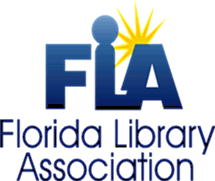
David Stoner, who directs adult services for the Clearwater Public Library System, helps Karen Prall post her resume on the Web. “The library is really the only place you can go to get direct help immediately,” said Prall.
Librarians have an image problem — stern face, thick round glasses, "shush!'' — which they parody with Web sites like Warrior Librarian and Macho Librarians with Guns.
Librarians have an image problem — stern face, thick round glasses, "shush!'' — which they parody with Web sites like Warrior Librarian and Macho Librarians with Guns.
Now, harsh reality has swept aside self-mocking pretensions to comic book greatness and turned librarians into real, if largely unsung, heroes of the recession.
Take mild-mannered David Stoner.
Trained to help adults discover the trial of Socrates and sixth- graders track the Oregon Trail, he now spends half his time in the trenches of a battered economy. There his job is far more urgent: helping people who need jobs, food stamps or Medicaid.
"These days, it's really social work in some respects," said Stoner, who directs adult services for the Clearwater Public Library System. "And it's really satisfying to see how much you are helping."
• • •
Karen Prall has been a Clearwater library regular since September, when she lost her dental assistant job. She doesn't like going to WorkNet Pinellas, a nonprofit workforce development agency. She said staff there are overworked, disorganized and dismissive.
When she visited the library on a recent Friday afternoon, Stoner swiftly had Prall, who has limited computer experience, posting her resume to the Web.
"The library is really the only place you can go to get direct help immediately," said Prall, 39. "You ask them and they don't say, 'I'll be with you in 20 minutes.' They'll come over and help you right away."
WorkNet president Ed Peachey said his organization gets criticized often, but there are plenty of people who appreciate its services.
"We do the best we can,'' he said, "with the resources that we have."
Andrew Breidenbaugh, chief librarian at Tampa's John F. Germany Public Library, understands Prall's contrasting opinions of those who tried to help her.
"I don't really think many people think of librarians as government employees,'' he said. "I think they think of librarians as members of a helping profession, like teachers.''
Some colleagues, he said, lament the "good old days," when the job was more about helping people find great literary works than navigating technology and applying for government aid.
Still, he said, they know times have changed.
With public access to government increasingly electronic, and libraries offering the Internet for free, librarians have in effect become gatekeepers for vital services now in record demand, although overall public use of libraries around Tampa Bay has not risen dramatically.
Juliet Douglas, a librarian at John F. Germany, has identified three primary areas where her patrons, hurting in the down economy, ask for help.
First comes Access Florida, the state's electronic portal for food stamps, cash assistance and Medicaid. Then comes Safelink, another Web-supported program that gives free cell phones to people getting government assistance. No. 3 on Douglas' list is using the Web to apply for jobs.
Her library and others around the bay area have developed specific programs to help patrons in these areas. In Clearwater, for instance, the library offers a program called "Hired! Putting Your Best Face Forward."
The trend is nationwide.
A recent Library Research Service survey found that 70 percent of librarians reported helping more patrons with computers in the past 12 months, 66 percent reported helping more look for work and 34 percent helping more seek jobless benefits.
Demand for these types of services has led to new types of on-the-job training for librarians. The Public Library Association's 2008 national conference featured several recession-related seminars including one called "The Disconnected: Who Are They? How Can We Help Them?" It examined how libraries can serve unemployed young people with job and educational opportunities.
• • •
Even as librarians have become facilitators of social programs, they're serving as hosts to the disenfranchised — and not just the homeless, who have long taken refuge in libraries.
Anne Shepherd, director of the Dunedin Public Library, said every morning unemployed people settle in at the library, almost as if showing up to work. Some, she said, bring laptops and use the library's free WiFi.
"It gives them a sense of belonging," Shepherd said. "They come here, they know the staff, they sit at the same table every day, like possibly they belonged to an office in the past."
• • •
Stoner, 41, got his library science degree from the University of South Florida in 1994. When he started his career, Stoner said, the social service aspects of his job were largely nonexistent.
Now he and other librarians in Clearwater rely on a kind of cheat sheet that details which government program can address a specific need, such as housing or filing for unemployment.
He has embraced his new role but remains uncomfortable with the idea of being any sort of hero-of-the-recession. He was less than thrilled to even be photographed for this story.
Still, he talks of his role much as Clark Kent might.
"Whatever people need,'' Stoner said, "we will try to help them."
Will Van Sant can be reached at vansant@sptimes.com or (727) 445-4166.
